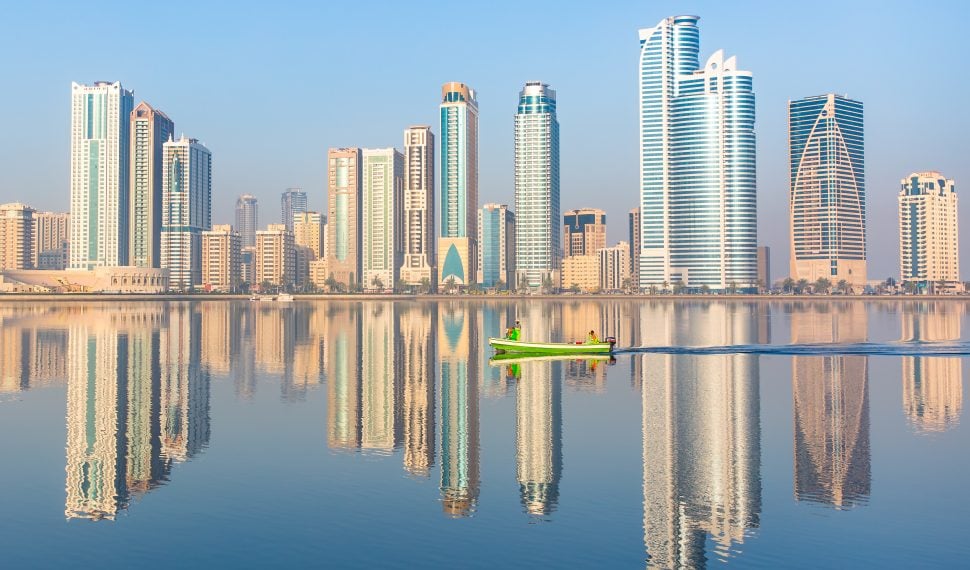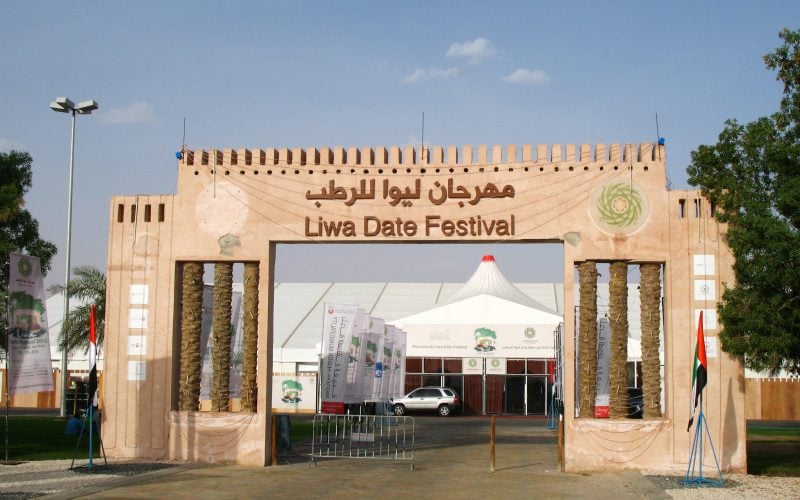
Photo 1: Sharjah, UAE (Source: Anton Rogozin, Flickr).
Groundwater levels in different regions of the UAE have dropped by 60 metres on average.[1] This poses a significant challenge, given that groundwater is among the country’s main water resources. Furthermore, there is a possibility that the groundwater supplies could run out by 2030 due to rising agricultural demand.[2]
Besides agriculture, there are two main factors that are increasing water consumption and waste generation. These are the luxurious lifestyle of many of the UAE’s residents and a lack of conservation measures.[3] Average water consumption is about 550 litres per person per day, more than double the global average of around 250 litres per person per day, according to one media source.[4] The Ministry of Climate Change and Environment put this figure lower, at an average of 353 litres per person per day, although this is still higher than many developed countries with a high standard of living, including for instance the United States, Japan, Norway and Spain.[5]
Competing sectoral demands
Due to population growth and urbanization, domestic and industrial water needs are escalating at rates with which available water resources cannot keep pace. The policy of food self-sufficiency, which aims to increase the UAE’s own food production for domestic consumption, imposes constraints on the allocation of water resources among various sectors. Despite the increasing water demand of domestic and industrial sectors, they still make up an insignificant portion of total water demand. Moreover, the impact of industrial development on general water availability has been lower than expected, largely because the industrial sector is generally responsible for meeting its own water supply requirements by desalination or other means, and has not been permitted unrestricted access to groundwater.
Adapting to climate change
According to the Intergovernmental Panel on Climate Change (IPCC) assessment reports,[6] water scarcity is expected to increase in the UAE due to the impact of climate change. Predictions indicate that in the next 50 years, rainfall may decrease by 15-20%, leading to a decrease in groundwater recharge and a loss of productivity of the few rain-fed areas. In addition, the country will be vulnerable to extreme weather events such as flooding and drought cycles. The rising temperature is expected to increase evaporation rates and water requirements especially in the irrigation sector. It will also lead to greater saltwater intrusion, a decline of tourism and a change in crop production systems.
Water reduction and public awareness campaigns
According to Suhail Mohammad al-Mazroui, chairman of the Federal Electricity and Water Authority (FEWA), FEWA managed to save about 2.2TCM of water in 2015.[7] This was achieved by cooperating with strategic partners to install 25,000 water-saving gadgets at 64 mosques and 60 schools. The eastern region managed to save 50.8TCM of water, a 30% reduction compared to 2014. The western region, meanwhile, saved 63.3TCM, a 22% reduction compared to 2014.
The biggest challenge regarding water conservation is raising public awareness and changing behaviours through different initiatives and campaigns. A campaign called ‘Every drop matters’, which was launched by DEWA in August 2015 and targets Dubai residents, aims to rationalize water consumption and water use. The CEO of DEWA stated that, “The campaign also supports Dubai Plan 2021 to make Dubai a smart, integrated and connected city whose elements are clean, healthy and sustainable.” This and several other similar campaigns have enabled DEWA to reduce water consumption significantly in the last six years.[8]
Due to the fact that the UAE has one of the highest per capita water consumption rates in the world (550 litres per day), many governmental and non-government organizations have introduced programmes that aim to increase the awareness of environmental protection methods. The target audiences of these programmes include the public, the media, schools and universities.[9]
Liwa Date Festival, for instance, is an annual event organized by the Environment Agency Abu Dhabi for the agriculture sector. The event is an ideal opportunity to address issues regarding groundwater use, water conservation and relevant environmental laws.[10]

Photo 2: Liwa Date Festival, UAE (Source: Timmey O’Toole, Flickr).
[1] Shahin, S.; Salem, M.A., 2015. ‘The Challenges of Water Scarcity and the Future of Food Security in the United Arab Emirates (UAE).’ Available at www.hrpub.org/download/20150201/NRC1-14203108.pdf, accessed 25 January 2017.
[2] The National, 21 February 2015. ‘Study cites rapid depletion of groundwater in UAE.’ Available at www.thenational.ae/uae/study-cites-rapid-depletion-of-groundwater-in-uae-1.62486, accessed 24 January 2017.
[3] Emirates 24/7, 25 August 201. ‘UAE’s water problem: why waste, waste water?’ Available at www.emirates247.com/news/emirates/uae-s-water-problem-why-waste-waste-water-2012-08-25-1.472595, accessed 9 January 2017.
[4] Ibid.
[5] Ministry of Environment and Water, no date. Green economy indicators. Available at www.moccae.gov.ae/assets/download/7e8b4415/uaes-green-eco-indicators.aspx, accessed 20 January 2017.
[6] Intergovernmental Panel on Climate Change (IPCC), 2014. Fifth Assessment Report (AR5). Geneva, Switzerland.
[7] Khaleej Times, 1 March 2016. ‘18% reduction recorded in water consumption: Fewa.’ Available at www.khaleejtimes.com/nation/dubai/fewa-saved-over-53-million-gallons-of-water-in-2015, accessed 18 January 2017.
[8] Khaleej Times, 18 August 2015. ‘Water conservation begins at home, Dubai tells residents.’ Available at www.khaleejtimes.com/nation/general/water-conservation-begins-at-home-dubai-tells-residents, accessed 9 January 2017.
[9] Abu Dhabi eGovernment, no date. Environmental Education and Awareness Programmes. Available at www.abudhabi.ae/portal/public/en/citizens/safety_and_environment/environment/gen_info27?docName=ADEGP_DF_3394_EN&_adf.ctrl-state=9uzo1h9sn_4&_afrLoop=12462024294313622#!, accessed 27 January 2017.
[10] Ibid.
